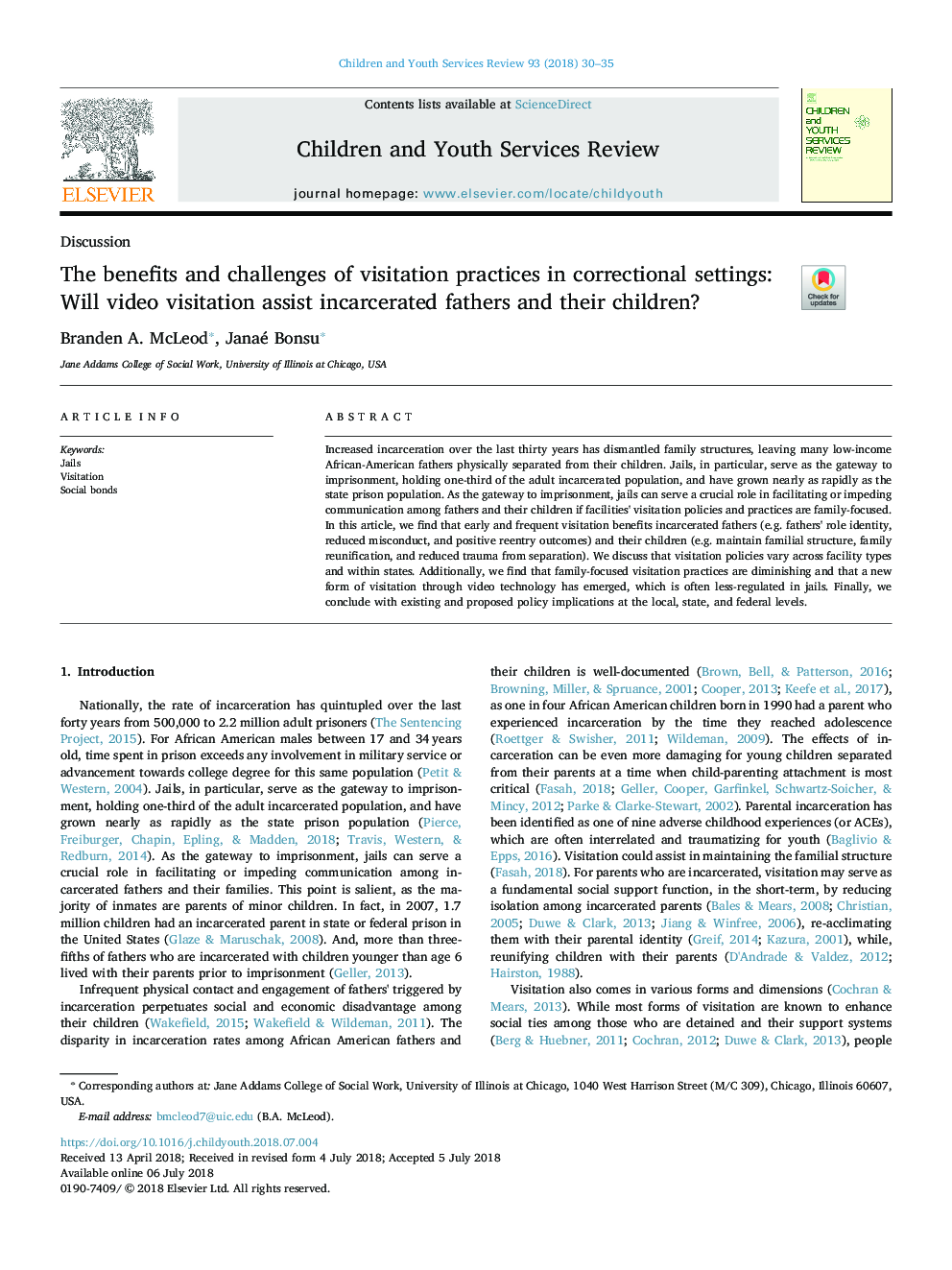| Article ID | Journal | Published Year | Pages | File Type |
|---|---|---|---|---|
| 6832758 | Children and Youth Services Review | 2018 | 6 Pages |
Abstract
Increased incarceration over the last thirty years has dismantled family structures, leaving many low-income African-American fathers physically separated from their children. Jails, in particular, serve as the gateway to imprisonment, holding one-third of the adult incarcerated population, and have grown nearly as rapidly as the state prison population. As the gateway to imprisonment, jails can serve a crucial role in facilitating or impeding communication among fathers and their children if facilities' visitation policies and practices are family-focused. In this article, we find that early and frequent visitation benefits incarcerated fathers (e.g. fathers' role identity, reduced misconduct, and positive reentry outcomes) and their children (e.g. maintain familial structure, family reunification, and reduced trauma from separation). We discuss that visitation policies vary across facility types and within states. Additionally, we find that family-focused visitation practices are diminishing and that a new form of visitation through video technology has emerged, which is often less-regulated in jails. Finally, we conclude with existing and proposed policy implications at the local, state, and federal levels.
Keywords
Related Topics
Health Sciences
Medicine and Dentistry
Perinatology, Pediatrics and Child Health
Authors
Branden A. McLeod, Janaé Bonsu,
